Enrich Your Plant-Based Diet With Raw Vegan Protein
Many people decide to cut meat and animal products out of their diets for various reasons. Some prefer eating clean food free of additives and antibiotics, others become vegans because of health reasons, or because of ethical reasons. No matter your reasons, going vegan is one of the best things you can do not only for your health and well-being but also for the health of the whole ecosystem. While you will need to make changes in many aspects of your lifestyle, including learning about vegan skincare, it’s your diet that will undergo the most drastic change.
While it’s definitely considered healthy, the vegan diet can lack certain nutrients most commonly obtained through animal-based products. One of the essential macronutrients that aren’t that abundant in this diet is protein. Although you can get some protein from plants, it often isn’t enough to satisfy your body’s needs. That being said, you may begin considering whether you should boost your diet with a raw vegan protein supplement.
Vegan Protein Supplements – Are They Necessary?
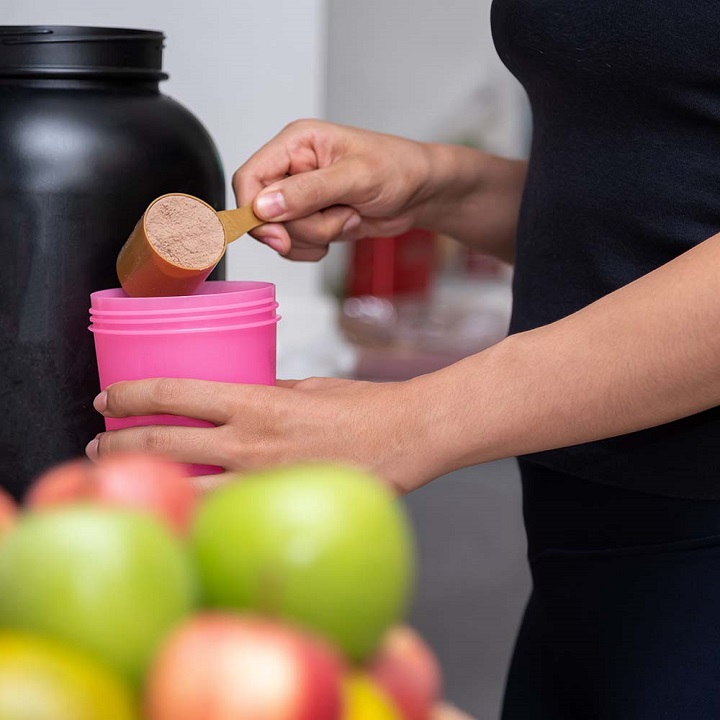
Source: shape.com
As a vegan, your diet has to be enriched with proteins. The number of proteins you get from food may not be enough sometimes. Adding these supplements to your diet means getting proteins from more than one source (besides nuts, leafy greens, or soy). Maybe you’ve heard so far that you will lose your muscle mass now that you’re vegan, but that doesn’t necessarily need to be true. A vegan protein blend supplement can help you keep your muscle mass and stay healthy. Of course, the protein content of these supplements may be a bit lower compared to whey protein supplements, but still, you could easily meet your daily needs. The two most common proteins that are great for building and keeping muscle mass are lysine and leucine.
Very often, the market offers various powdered plant proteins combined as blends. Plant-based blends will provide with the optimal amount of essential amino acids. If you’re looking for a vegan protein that is dairy-free and gluten-free, raw and soy-free, we suggest you go with Veego Plant Protein Powder. This is a mix of organic pea protein, hemp and organic brown rice protein. This mix will provide you with lysine (pea protein) while rice protein will provide you with methionine (which is low in pea protein). Besides that, such a blend can provide you with the needed amount of fibre, which is crucial for the proper functioning of your digestive system.
At the end of the day, you can go peacefully to bed knowing that you got your proteins from a source that didn’t have to die for it. Also, your plant-based proteins certainly don’t contain antibiotics or hormones. Here are some of the best types of vegan protein supplements to look for.
Pumpkin Seed Protein
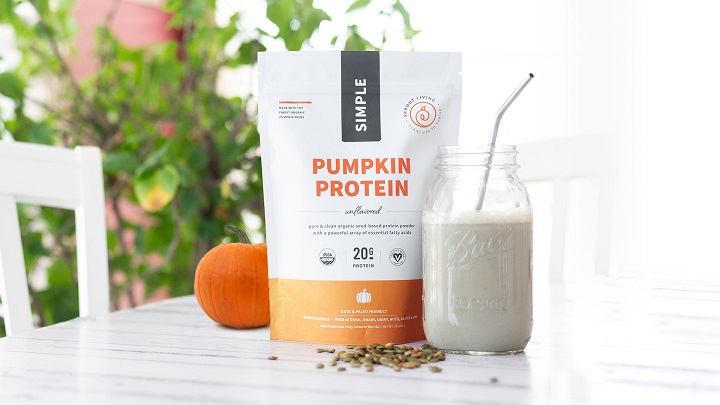
Source: sproutliving.com
Whole pumpkin seeds are known to be packed with proteins and healthy fats. When they come in the form of powder, most of the fat is removed, therefore you’ll consume fewer calories and get a lean source of protein. Just 28 grams of a serving of pumpkin seed protein has about 103 calories and 18 grams of protein. This is the perfect combination if you want to lose some weight but keep the right amount of proteins in your system and maintain your muscle mass.
In addition, pumpkin seed protein powder is packed with nutritious amounts of zinc, iron, magnesium and minerals, which are crucial for boosting your immunity. Several studies were done on the health benefits of pumpkin seeds and there’s great evidence that they have antioxidant and anti-inflammatory qualities.
Pea Protein Powders
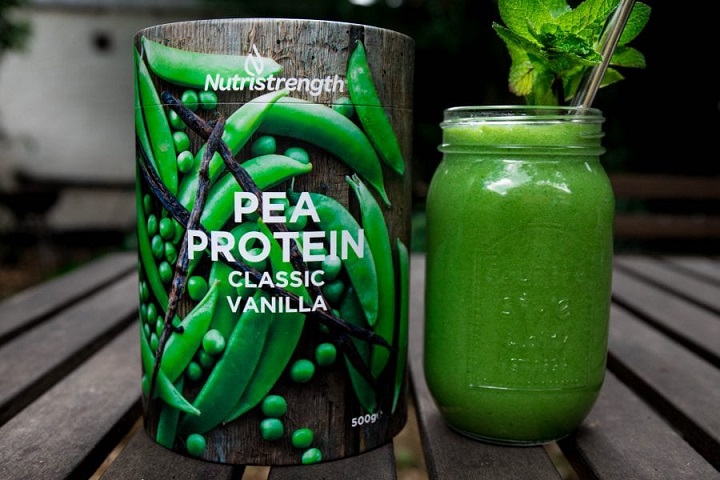
Source: thecookandhim.com
Pea protein powder (which we’ve mentioned when talking about the importance of protein blends) isn’t made from sweet green peas but from yellow split peas, which are known to have higher amounts of proteins. A serving of 28 grams has about 21 grams of proteins and 100 calories.
Pea protein is rich in the essential BCAAs (branched-chain amino acids), leucine, valine and isoleucine, this protein will stimulate your body to make muscle protein. So, if you want to continue working out, feel free to add this protein in your diet. The muscle gains with pea protein are similar to those of people who consume whey protein.
Soy Protein Powder
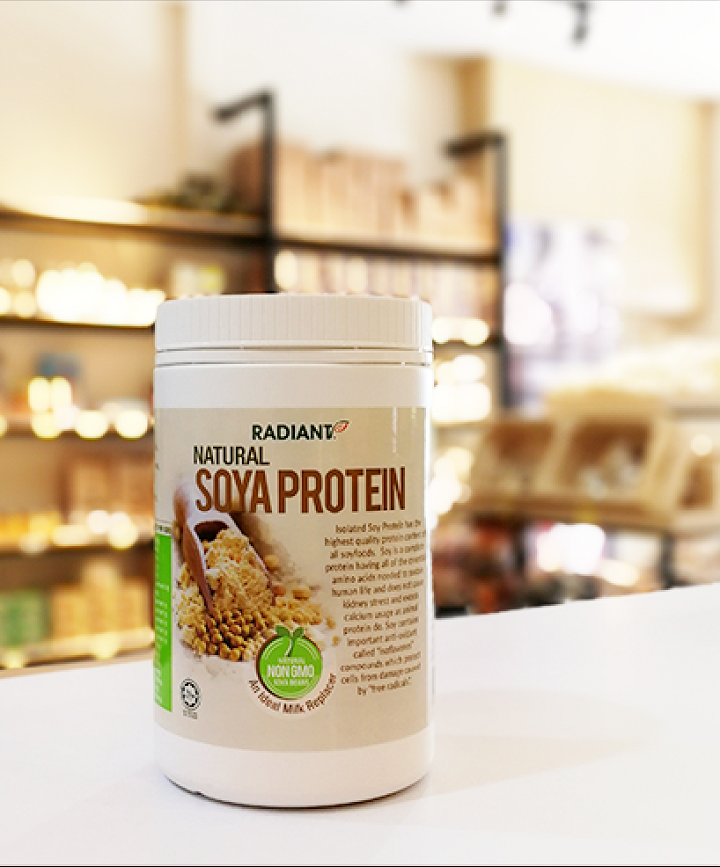
Source: lazada.com.my
This is a complete protein, which isn’t very common for plant protein. Soy protein is high in BCAAs that supports muscle strength and growth. A serving of 28 gram of this protein powder has about 95 calories and 22 grams of protein (this depends mainly on the brand of course).
Be sure to seek soy protein powder that is not genetically modified. If you’re allergic to soy, it’s needless to say that you should avoid it.
How to Choose Vegan Protein Supplements
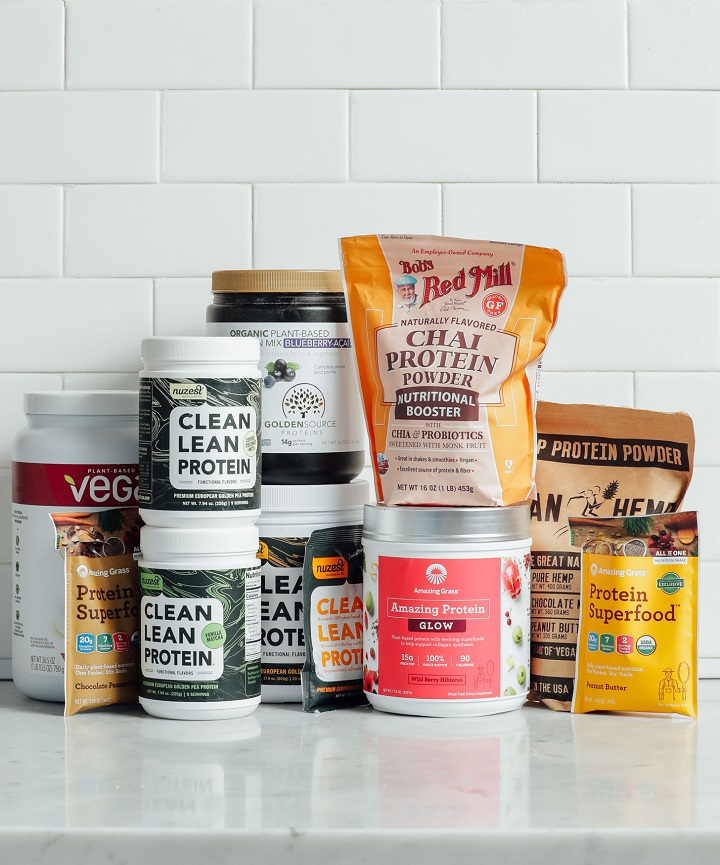
Source: minimalistbaker.com
Keep in mind that a scoop of vegan protein has 21 grams ( but still check with your brand). Be sure that the first ingredients on the list are the protein sources (the best is if it’s pea protein and organic rice protein) instead of fillers or sweeteners. If there are added sugars and carbs, check the amount. You can go for proteins with added fruits, vegetables, vitamins and minerals.
The taste varies from brand to brand and should fit your preferences. You can find banana-flavoured or chocolate-flavoured proteins. Or, you can enrich your protein with added fruits of your choice or sweeten it with a natural sugar substitute without the guilt, and stick to the raw, sugar-free kind. Also, you can blend the powder with unsweetened rice or almond milk.
Most people would rather choose a vegan protein blend of pea and brown rice protein so they can be sure they got all needed amino acids and quality vegan proteins. However, you can always go for ‘clean’ powders such as pea, chia seeds, pumpkin or sunflower seeds proteins. It’s all up to you to decide.






